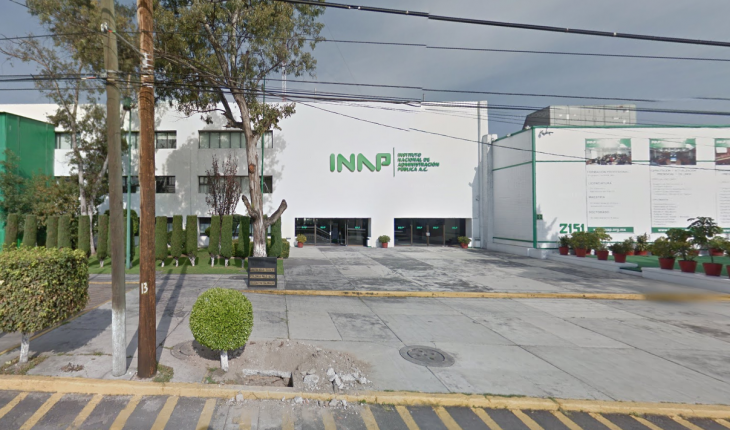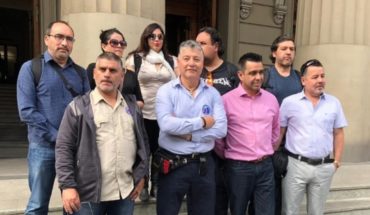Master’s students of the National Institute of Public Administration (INAP) could lose the semester that is in progress and see their studies suspended, because they will not be able to pay within the period that has been given to them to cover their tuition debits.
In the past days, INAP asked all its students to settle their tuition debits no later than Friday, August 14. The Institute argues that the previous administration left few resources and have many outstanding pays.
In view of this ultimatum, some students approached the Administration of the Institute to request a longer time limit to pay, which was denied to them, even though they stated that they are currently in financial difficulty because of the pandemic.
Lee: Treasury estimates that coVID crisis will lose 402 billion tax payments
Lucero Castrejón, a student of the Master’s degree in Intelligence for National Security, explains that the demand for payment to allow them to finish the semester came after the change of administration of INAP, last May.
“We are enrolled without an established payment scheme, in which everyone was covering their dues according to their means, but with the change of administration the collection line was hardened,” he says.
According to Castrejón, on June 26 she and other INAP students received an email informing them that they had to regularize their payments by July 31, or they would start charging them interest. Nor were they informed when they entered the master’s degree, a year ago, that they would be charged if they did not partially cover the fees.
Faced with this situation, a group of students sent a document to the INAP management explaining that the lag of payments was due to the pandemic and that they are currently struggling to cover all the amounts, but that they were open to negotiating longer deadlines for paying the money, without the institution responding.
Read: Without internet, TV or radio, three brothers in Chiapas end the school year with only one cell phone
The last communication they had on the subject with the institution was an email they received this Monday, August 10, in which they informed them that those who do not cover the entirety of their debit this Friday are going off.
“The previous administration left few resources”
Political Animal he consulted INAP to learn its position on student complaint, to which the association responded that as a result of the renewal process of the Board of Directors, since 1 May last have a new structure “and a new Institute project”.
Through a statement, the Institute reports that its finances, “although they are not in deficit, are also not bonanza because the previous administration left few resources and many outstanding payables”.
Therefore, he explains that “a campaign aimed at the recovery of the overdue portfolio corresponding to the collection of tuition to students with late payments is being carried out. This portfolio comprises 98 irregular persons, among whom 15 submitted debits for up to two years of delinquency, with amounts exceeding 100 thousand pesos for each student.”
Find out: In the face of an economy in crisis, financial education is crucial
INAP states that a policy of analyzing on a case-by-case basis has been followed, “listening to the arguments that have been diverse… Most of the debtors have come with us, others have not answered.”
It further argues that the obligation to pay is clearly expressed in CHAPTER III, Article 19 of the School Regulations, which states that “the fees for each quarter, quarter or semester may be covered on a monthly basis. At the end of the month the student will have ten calendar days to cover the payment.”
It adds that Article 20 specifies that “in the event of debit the student will not be able to carry out formalities before ENAPROG”.
The Institute acknowledges that they have received “anonymous messages on behalf of all debtors, arguing that there is a whole policy of abuse against students”, which they consider “misinvested and undermine the facts”.
Finally, it notes that beyond the “unfounded complaint” of debtors, in INAP “we do not contribute to the formation of people, responsible, honest and who fulfill their obligations with the commitments made. We have to analyze this in depth because since its creation this Institute is more than committed to training professionals of the highest level, but also full and congruent people”.
About this position of the institution, Daniel Martinez, also a master’s student in Intelligence for the(a) Homeland Security, says that they are aware that they have a debit and that it has to be paid, “but when we signed the letter of engagement that we signed, and of which only the Institute has a copy, he noted that we had to cover it in its entirety before finishing the master’s degree.”
Therefore, it seems unfair that they “make a statement where they speak without knowing us and call us to be dishonest and unprofessional, without listening to us because we wanted to approach and never answered us.”
In his case, he asked the Institute for an opportunity to settle the total of his debit in November, to which INAP replied via email only that they had read his proposal.
Javier Padilla, another inAP student, is in the same situation before a debit of 50 thousand pesos that ask him to liquidate.
“I live off the projects I implement in municipalities and by covid those projects went to zero and are going to be postponed until next year. I thought the institution was going to support me and I sent a payment proposal, with no answer. I then asked again about my request and they replied that I had to liquidate everything or my quarter would be suspended,” he says.
Another student who could lose his quarter, Hugo Vilches, says that all they ask of the Institute is a debt restructuring, which takes into account that a crisis resulting from the pandemic is being experienced nationally and globally.
Like Vilches, Padilla points out that as students, they had the flexibility to adapt to a distance class modality, so they ask that considerations be made with students to pay the debt.
For Lucero, this situation “makes clear the position of the Institute, that the students ceased to be a priority, that there are no channels of communication or negotiation”.
“It seems that finances are above the student workforce. They talk about healing finances, but with this situation they will end up losing more money because there will not even be quorum to open the groups.”
What we do in Animal Político requires professional journalists, teamwork, dialogue with readers and something very important: independence. You can help us keep going. Be part of the team.
Subscribe to Animal Politics, receive benefits and support free journalism #YoSoyAnimal.
translated from Spanish: Students ask INAP for tuition flexibility; institute da ultimatum
August 15, 2020 |





